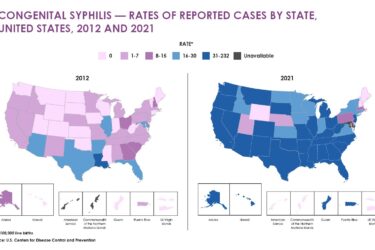
At the Health Journalism 2018 panel session, “Is climate change a threat to public health?” the answer was a resounding yes – but in ways that reporters and editors might not yet realize.
Extreme weather events are making headlines all over the world with increasing frequency and journalists should be aware of the cascade of health issues that happen beyond the immediate calamities of these events, panelists said. Scientific research on these effects is just getting started.
“Climate change is like this big hammer,” said Kacey Ernst, Ph.D., M.P.H., associate professor of epidemiology and biostatistics at the Mel and Enid Zuckerman College of Public Health at the University of Arizona. “It has a ripple effect across many areas.”
“It’s not quite that simple that we are going to have more water and vector-borne diseases,” she continued. “We have to understand the local conditions. There are other indirect effects.”
For instance, scientists are tracking a possible rise in HIV infections in certain urban areas across the globe as migration caused by climate events pushes people out of their homelands, Ernst said.
U.S. physicians should be prepared to see a resurgence in malaria and other diseases long eradicated here as the climate changes, warned Nitin S. Damle, M.D., a clinical associate professor of medicine at the Alpert Medical School at Brown University and immediate past president of the American College of Physicians.
“We are going to see a resurgence of malaria here in this century,” Damle said. “In our offices, we should be ready to see malaria cases that have not been brought in from overseas.”
Damle provided an overview of cases of respiratory, waterborne, vector-borne and heat wave-related illnesses caused by climate change. His detailed presentation will soon be available on the conference website.
Many effects of climate change are unseen but no less deadly, said Joshua C. Morganstein, M.D., assistant chairman of Center for the Study of Traumatic Stress at Uniformed Services University School of Medicine in Bethesda, Md.
A pioneer in disaster psychiatry, Morganstein said that although the public often associates disaster events with PTSD and other psychiatric disorders such as depression, there also is an underreported predominance of “distress reactions.”
These distress reactions include poor sleep, social isolation, and increased smoking and drinking. After a disaster event an entire community is largely underslept, Morganstein said, which can lead to increased motor vehicle crashes, problems at work and domestic violence incidents.
“Following a disaster is a psychological burden more significant than a medical burden,” he said. “Far more people will develop psychological and behavior problems than medical problems. The geographic range affected by psychological problems is far greater than physical injuries.”
Panel moderator Alicia Ault, an independent journalist who owns a home in New Orleans, agreed that the effects of a disaster could last for a long time in a community.
Hurricane Katrina, she noted, has “never receded from public memory.”








